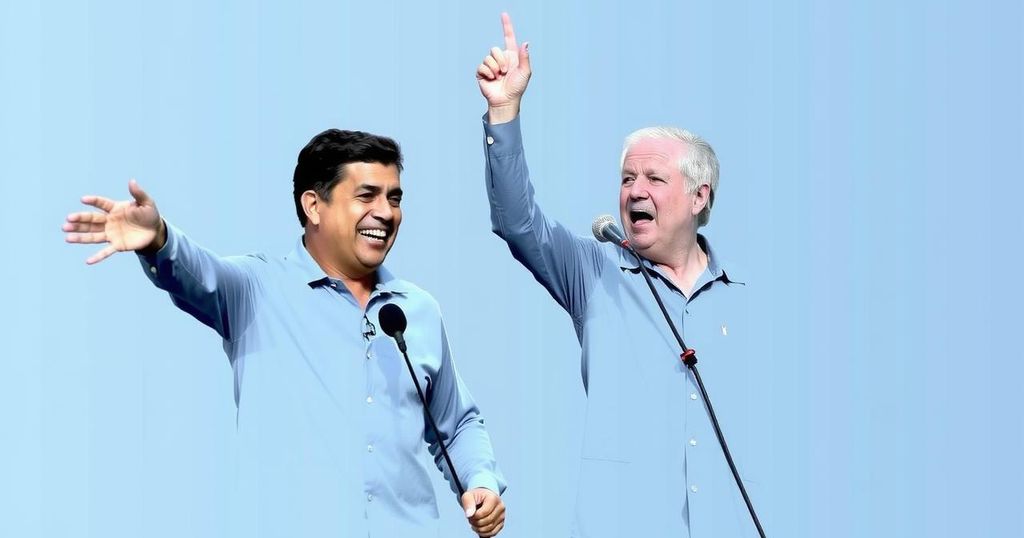Uruguay’s presidential election has led to a run-off between Yamandu Orsi, representing the centre-left Frente Amplio, and Alvaro Delgado from the centre-right Partido Nacional. Following initial polling results, which showed Orsi with 43.2% and Delgado with 28%, they will contest again on November 24. The election deviates from severe political divides seen in regional counterparts, as citizens grapple with concerns over rising crime and governance effectiveness, all while rejecting recent referendums on retirement and police practices.
In a presidential election characterized by a defiance of regional political trends, Uruguay is set to conduct a run-off vote next month. Polls indicate that a leftist history teacher, Yamandu Orsi, will compete against Alvaro Delgado, a centre-right veterinarian, in the second round of voting scheduled for November 24. Orsi, a representative of the centre-left Frente Amplio party, garnered approximately 43.2 percent of the initial vote, edging out Delgado, who received around 28 percent. Third place belonged to Andres Ojeda, a lawyer likening himself to Argentina’s President Javier Milei, with estimates showing his support at about 15.5 to 16 percent. The election, engaging a voter base of 3.4 million, was accompanied by critical referendums aimed at altering the retirement age and law enforcement practices; preliminary exit polling indicates a rejection of both measures. Notably, this vote illustrates a departure from the stark political divisions observed in neighboring Latin American nations, as candidates displayed significant policy overlap. The current government’s performance under President Luis Lacalle Pou of the Partido Nacional remains relatively popular, yet rising crime rates linked to drug trafficking pose substantial concerns for voters. Given President Lacalle Pou’s constitutional barriers against seeking reelection for a consecutive term, the campaign dynamics hinge significantly on Orsi’s potential leftward shift for the nation following five years of conservative governance. Former President Jose “Pepe” Mujica, despite his health challenges, actively participated in the electoral process, highlighting his enduring influence in Uruguayan politics.
The political landscape in Uruguay has historically been marked by a stable democracy and moderate political transitions. In the recent election cycle, polling forecasts suggest a departure from the expected outcomes, with a potential leftward shift if Yamandu Orsi secures a victory in the upcoming run-off. This election is particularly notable as it contrasts sharply with the shifts seen in other Latin American countries, where there are often pronounced ideological divides. Furthermore, Uruguayan society has generally expressed satisfaction with the government’s economic performance, even as crime-related issues have intensified debates among the electorate, particularly concerning drug trafficking and public safety.
The approaching presidential run-off in Uruguay underscores a significant moment in the country’s political evolution. As Uruguay grapples with crime concerns amid a backdrop of economic stability, the outcomes of the election will not only shape the political future but also reflect the electorate’s priorities. A victory for Orsi could signal a return to leftist governance, revitalizing the historical legacy of figures like Jose “Pepe” Mujica. In contrast, a win for Delgado could reinforce the current administration’s policies amidst increasing scrutiny over public safety.
Original Source: www.aljazeera.com






